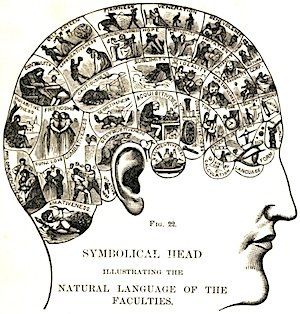10 interesting information about social psychology
Among the anthropologists, there are many theories about the origin of group consciousness when it first happened. There is no end to the debate. But they could not come to the conclusions about this.

Social Psychology (9780716704225) | Macmillan Learning
Anyway, now we have chosen the organized life as a born. Because no person can survive by separation of society. And to move together in this society, it is necessary to cooperate with each other. It may be in a conscious state, or unconscious mind.

What are some mind blowing social-psychological example in ...
Why do people help others? Actually, some special psychological conditions work behind it. Research on this is a special branch of psychology, called 'social psychology' or 'psychosocial science'. This branch works with people's ethnic behavior. Social psychology has given us so many information about human social behavior so far.
♦Here are ten of his interesting topics:
√1. We have seen many people fall in an accident while going on the road. Sometimes they themselves become victims. Everyone does not come forward for such a sudden accident or distress. They caught the crowd around and saw the accidental man. From this, a handful of people extend their help.
Despite this many people, even a handful of people extend their hands to help, it is called psychology, bystander effect. The fact is, "the more people will be present in the event of an accident or problem, fewer people will extend their help." That means the possibility of getting help with the number of people is interrupted.

Social Psychology Comic
√2. Often, people around us also see people who are at risk of risking others. They do this despite having many dangers. In psychology it is called abbation experiments. American psychologist Stanley Millagram first researches the matter. This is why it is also called Millgram Experiments.
In a 1963 study, he showed that when a person sees another person in danger or being hit by an accident, he feels a kind of electric shock in his body, which inspires him to come before the accidentist for help. In 1974, Millgram wrote a book on 'Abedness to Authority: An Experimental View'.

Social Psychology: Definition, History, Methods, Applications ...
√3. We read many of Shamsur Rahman's poems 'Pandashram' in his childhood. Chile got ears. Everyone is running behind the chill after hearing this news. Later in the ears the hands can be seen by hands, they have only one place. We often make mistakes in the team. Later on we are in the senses.
For example, let us accept the decision of the leader without any hesitation. Later, the decision was wrong. And all of the parties jointly made a mistake. Everyone really wants to keep pace with the team. In 1951, the first test was conducted by the Polish psychologist Solomon Eliot Aich. His name is Aches Confirmation Experiments. In it, he shows, the line between the lines of almost the same three lines is the largest - when a certain member of the team chooses to select the wrong line, then the other members make the same mistake.

Key Characteristics and Core Motives of Social Psychology ...
√4. Changing the situation plays an important role in the social behavior of the people. When a man works for a long time in an environment, then suddenly he can not continue working until he is removed from the environment. In psychology it is called 'Stanford Prison Experiments'.
![]()
Social Psychology stock illustration. Illustration of icon ...
Psychology researcher Philip Zimborno runs the study at Stanford University He sent a group of college students to jail. It can be seen that they can not practice any general rule more than six days in prison. After six days forget the rules. Wreak havoc As a result, prison guards started abusing their power. Because of environmental change the students could not comply with the rules there. But in the college they just followed the rules.
√5. We always like them, with whom we have the 'match of mind'. Because our belief is also mixed with the thoughts of those people. And ignore those who do not like them. Our mind does not match with them. This matter of mind is called the psychology 'exponential confirmation', which can be said to be 'expectation of hope'. This theory of psychology is used in marketing. In 1977 psychologist Richard El Oliver presented the first issue.

7 Social Psychology Studies to Help You Convert Prospects ...
√6. When we classify different communities in the society, the tendency of creating greater differences between different groups works in us. And we try to reduce the difference between the same group. It is sometimes also due to the prediction or reforms. In psychology it is called 'Social Identity Theory'.
√7. Our viewpoint, or how we evaluate a person, concept or object - can be both: clear and vague A clear view is that when we form our attitudes consciously and are fully aware of the valuation. On the other hand, our obscene attitude is created when we unconsciously form our outlook. These two types of attitudes have a strong influence in our social behavior. It is called 'Social Influence'.
√8. Our attitude about that person is based on the person's desired role, social norms and social classification. Our behavior towards a particular social group is based on the role of a person based on him. That is why we behave differently with people of different classes of society. In this case, we see who, including a social group.
Sometimes our special feelings about a person are made when we first look and we expect to behave from him accordingly. Because of this attitude, the concept of discrimination is often made in us. Because of social psychology, it is called 'decrimination'.

Social Psychology « Organisation Development
√9. A tendency among people always works: When he succeeds in any work, he boasts of behind his 'inherent' power. When they fail again, then try to blame others. Likewise, when people evaluate the failure of others, then they are responsible for the responsibility of the person who fails. He says that he has done his own fault.
For example, if we get a bad number in a test, we blame the teacher. And if this happens in a classmate, I say, he did not study carefully. Psychologists call this tendency to 'actar-observable bayas' or 'actar-observatory asymmetry'. That is to say, when we are making an incident ourselves, then there is a kind of perspective in its success and failure. And when calculating the success and failure of another, there are other types of perspectives. It's bias towards yourself. This topic was first discussed by psychologist Fritz Heiders.

Social Psychology | Create WebQuest
√10. It is seen in different groups or groups, that people generally favor the majority of opinions. Most of the opinion they do not mind. Psychology calls this tendency 'group think' Party people always want to avoid conflict and reach a consensus. In this case, sometimes they accept irrational decisions. This kind of behavior is created from the consciousness of the unity of a group of people.
Psychology major, here!
If you want someone to say yes to something you're asking for, here are some options:
Nod as you ask. Our brains have what are called 'mirror neurons' which activate to make us mimic other people's actions. Sometimes they will also start to nod, which then makes them then agree with you. I learned the mirror neurons part in psych class, then the nodding part when I worked in sales. Shit's legit.
If you have a big favour to ask, start by asking smaller ones ahead of time. This is called the foot in the door phenomenon, I believe. If you ask for small things, then work up to big things, people are more likely to say yes than if you start off with a huge favour.
Inversely, if you are asking for a small favour but still know that they will probably say no, start by asking them for a huge favour. Then when they say no, ask for the smaller one. They're more likely to say yes, especially if they feel a bit bad about turning down the first request.
Nice post...thanks for the info
Posted using Partiko Android
Thanks
The force is with you! You got a 33.33% upvote from @steemyoda courtesy of @eliashossain!
This post has received a 4.58 % upvote from @boomerang.
I notice that your post has been copied without your permission
10 interesting information about social psychology
Thanks